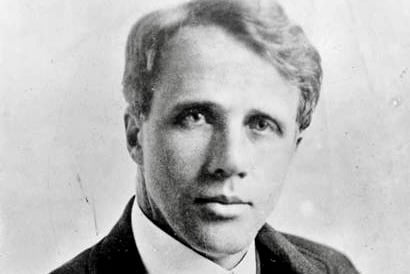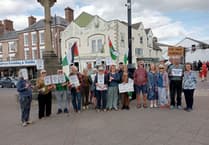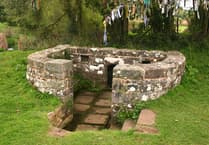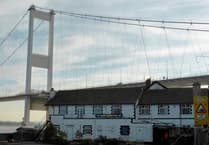I MENTIONED briefly in a ‘Forest View’ last year the ‘Dymock Poets’, a coterie of mainly non-local literary peoples who colonised the area just before the First World War.
They lived in remote houses with exotic names like Little Iddens, the Old Nail Shop, the Gallows and Oldfields.

They seem to have developed no affinity to the Forest during their brief stay in the area, but their daffodil walks and their verse have made a lasting impact on the area, and are locally celebrated.

Edward Thomas and his great friend Robert Frost were perhaps the greatest, or at least the best known of the Dymock poets.
Frost went back to his home in America and became one of the USA’s greatest poets, with a role in JF Kennedy’s presidential ceremony in 1960.
Thomas went off to war and was killed in France in 1917. His influential poem ‘Adlestrop’ captures a vivid moment in time, when the train that was taking him from London was unexpectedly stranded for a while at Adlestrop, a village in the Cotswolds, on its way to Dymock.
Dymock and Adlestrop railway stations no longer exist, but Adlestrop Station will always be remembered in the poem, in which time and the train stand still and offer the poet a penetrating view of the landscape.
There is a fine collection of Thomas’s poetry in ‘Edward Thomas’, an anthology of his work delightfully illustrated and compiled by local artist Valerie McLean, published by Fineleaf Editions, of Ross-on-Wye.
The poem ‘Adlestrop’ is forensically examined in ‘Adlestrop Revisited’, a volume compiled and edited by Anne Harvey.
Adlestrop has a previous literary connection. Jane Austin visited relatives in the village and is believed to have used the local Park and Rectory as locations in her novel ‘Mansfield Park’.
Anne Harvey demonstrates the remarkable influence that ‘Adlestrop’, a very short poem about a brief moment in time, had on generations of writers.
In her book there are 27 verse tributes or parodies, by famous and unknown poets, and ‘Adlestrop Revisited’ includes the play ‘Adlestrop’ which was broadcast on BBC radio in 1975.
And this is the newly published 28th version, by Forest View:
Yes, I remember Minsterworth – the name
Because one afternoon of gloom
The 23 bus drew up there unwontedly
No one left and no one came on the bare bus stop.
No one rang the bell
What I saw was Severn views, and water meadows
A slaughterhouse and empty schoolrooms
Brand new houses for new commuters
River banks for Severn Bores
Birds forgathered for Slimbridge sanctuary
And all around were Walmore Common and Berkeley Vale
And far away the mistier hills of Cotswold and Forest high.
Sorry it doesn’t rhyme, but neither did Edward Thomas’ version.
.jpeg?width=752&height=500&crop=752:500)




Comments
This article has no comments yet. Be the first to leave a comment.